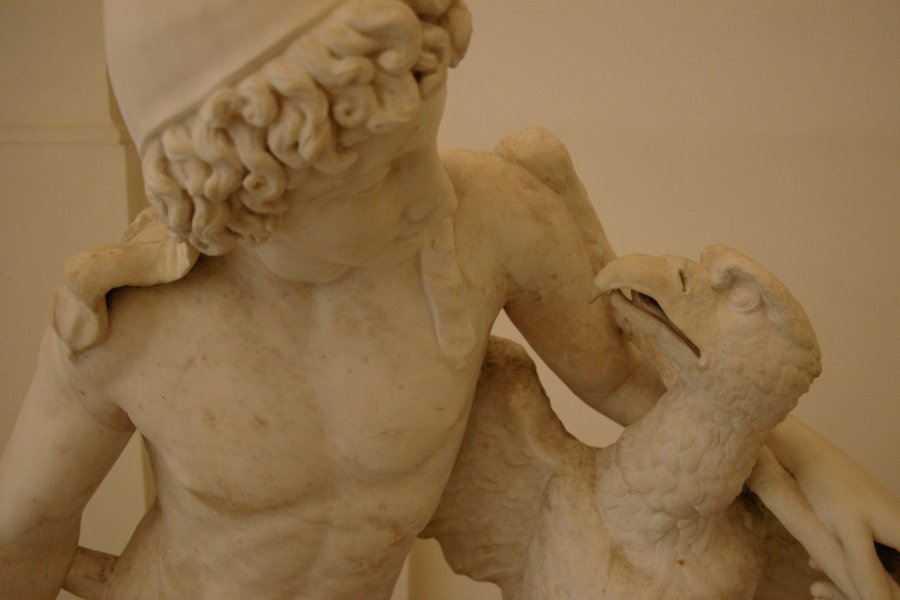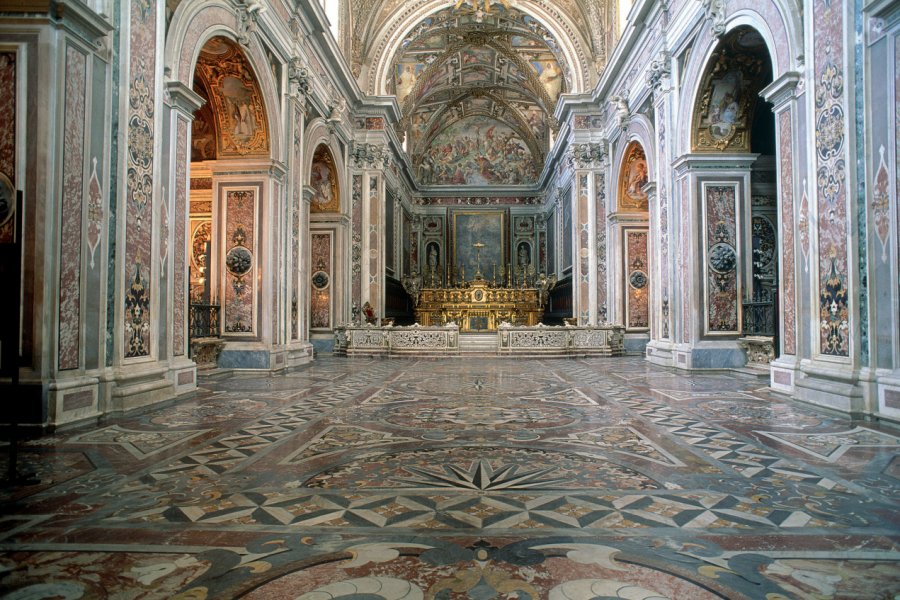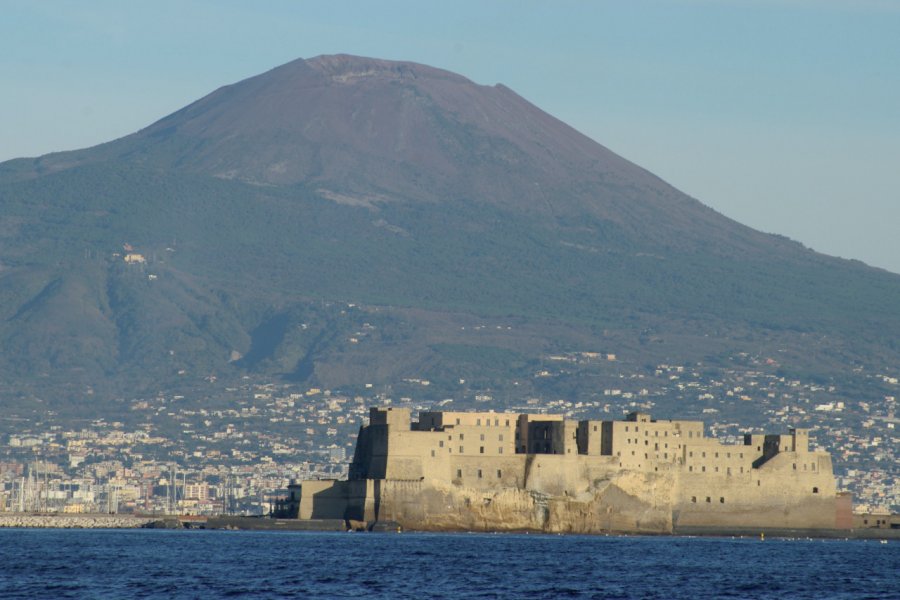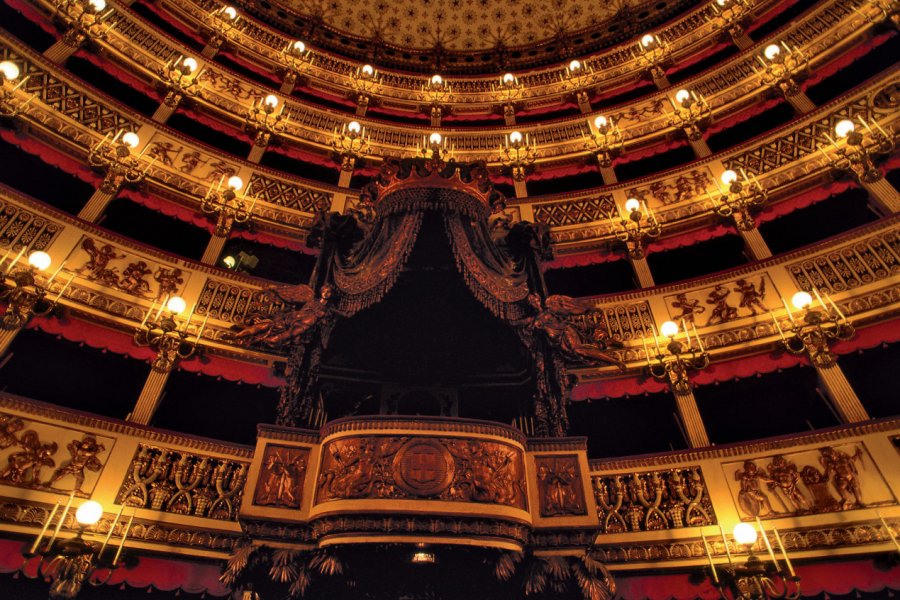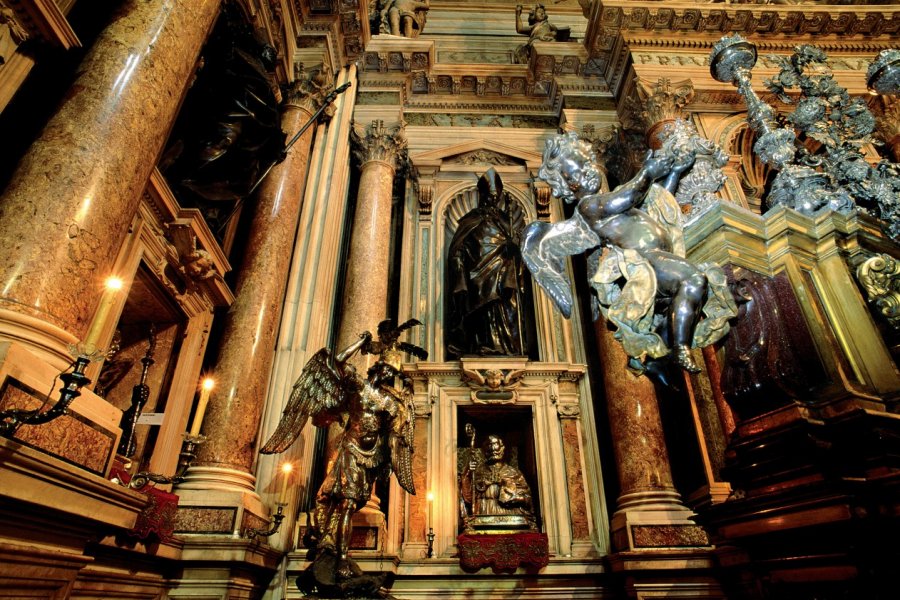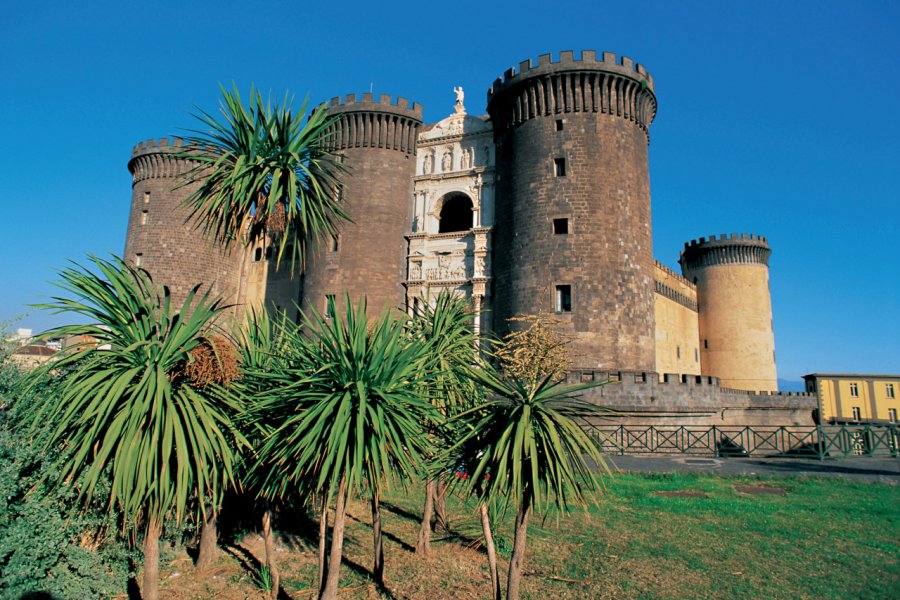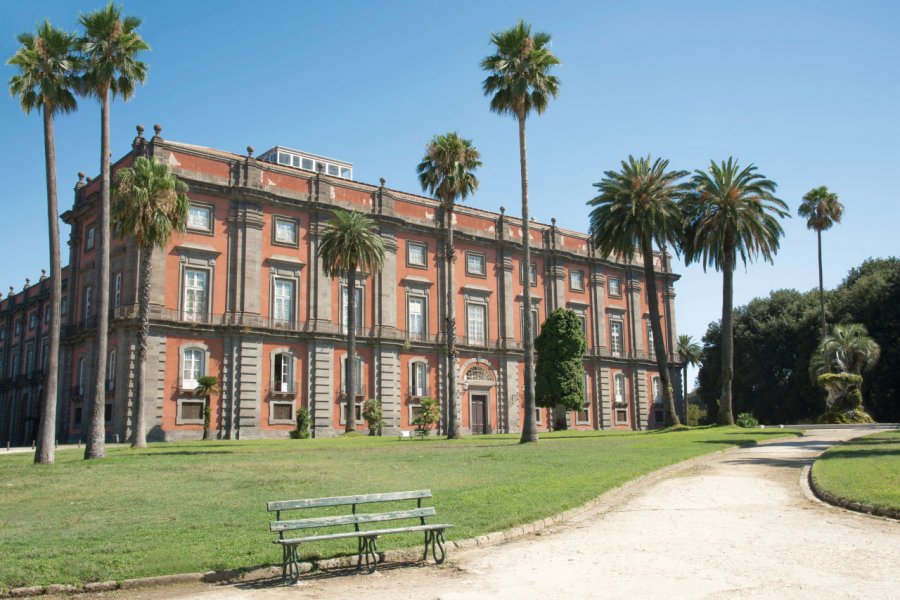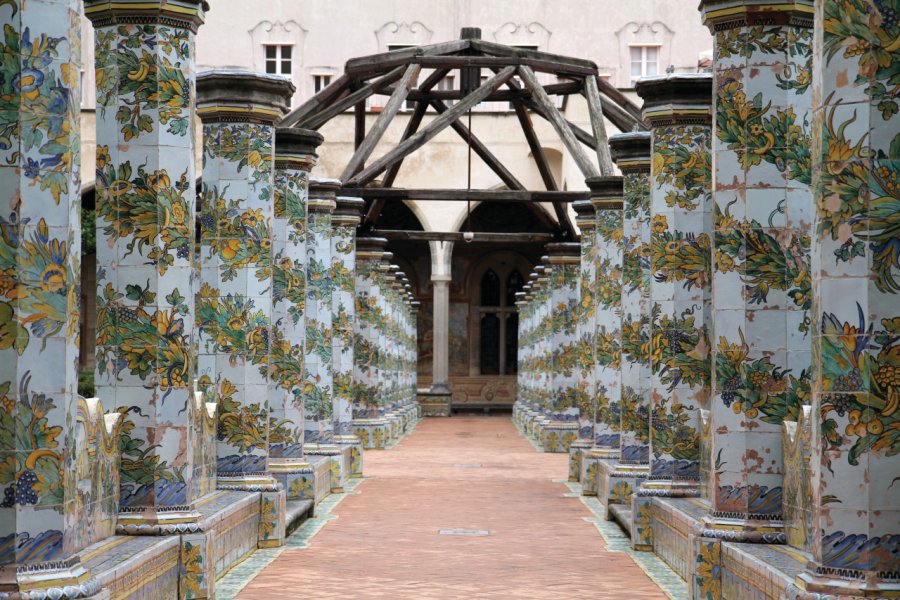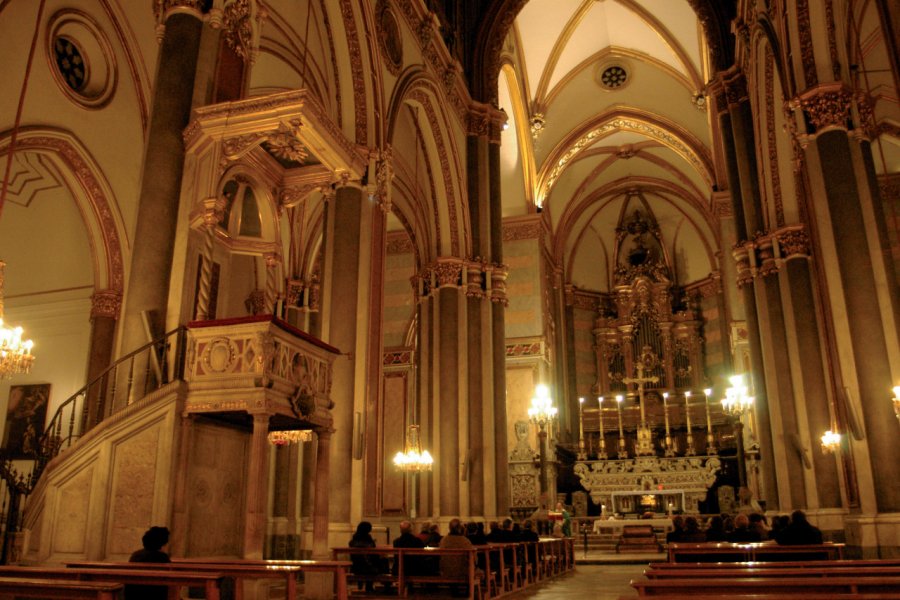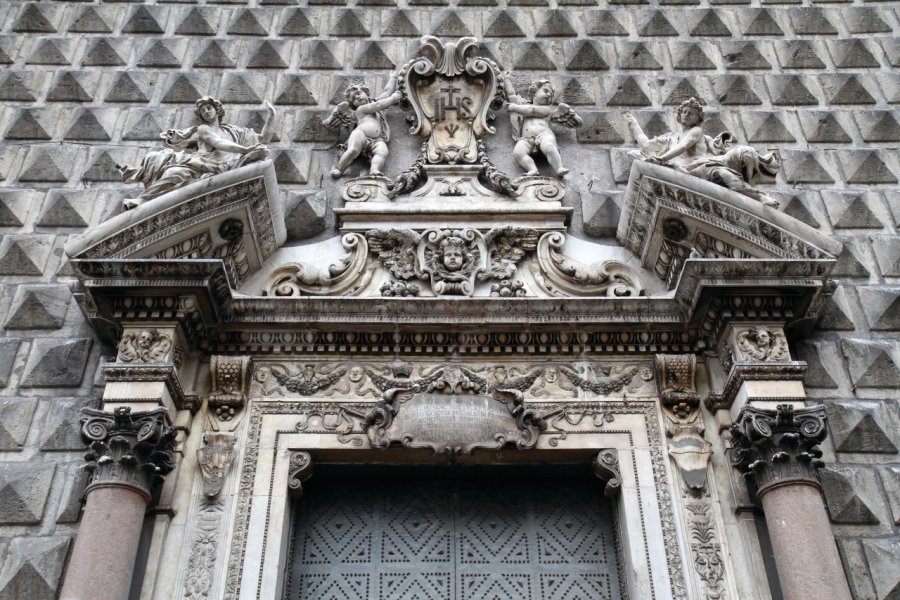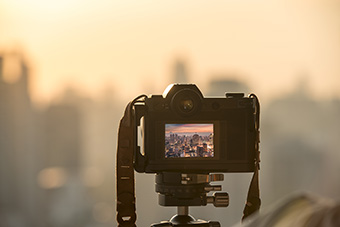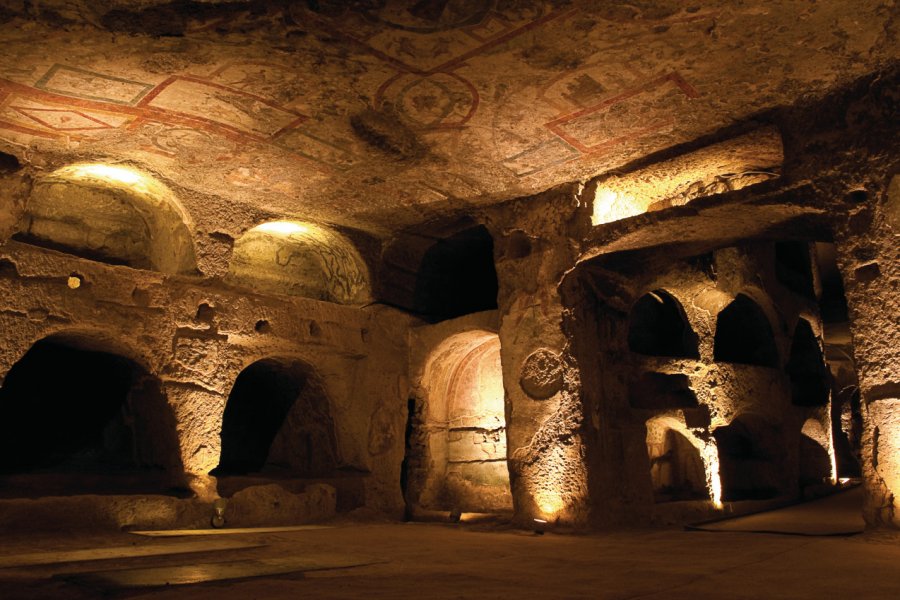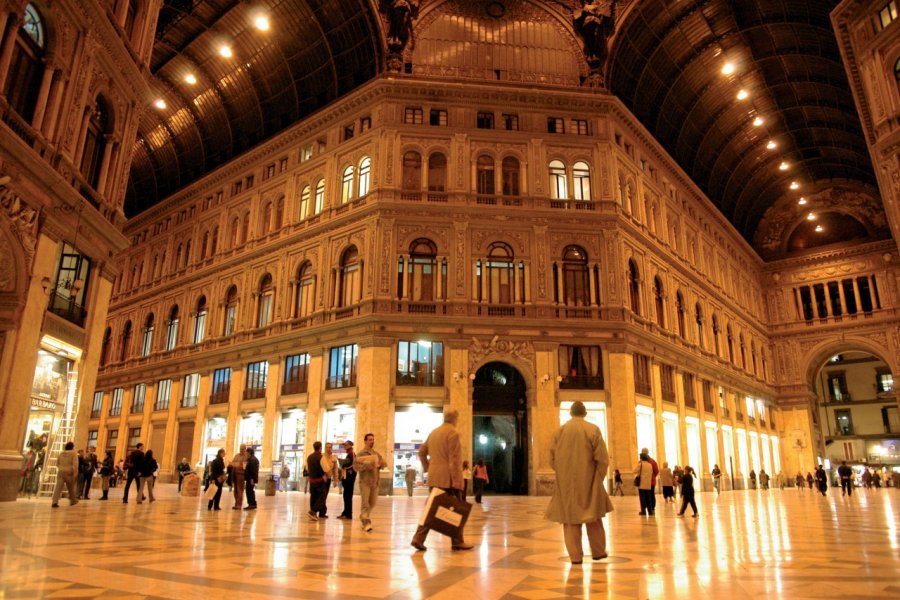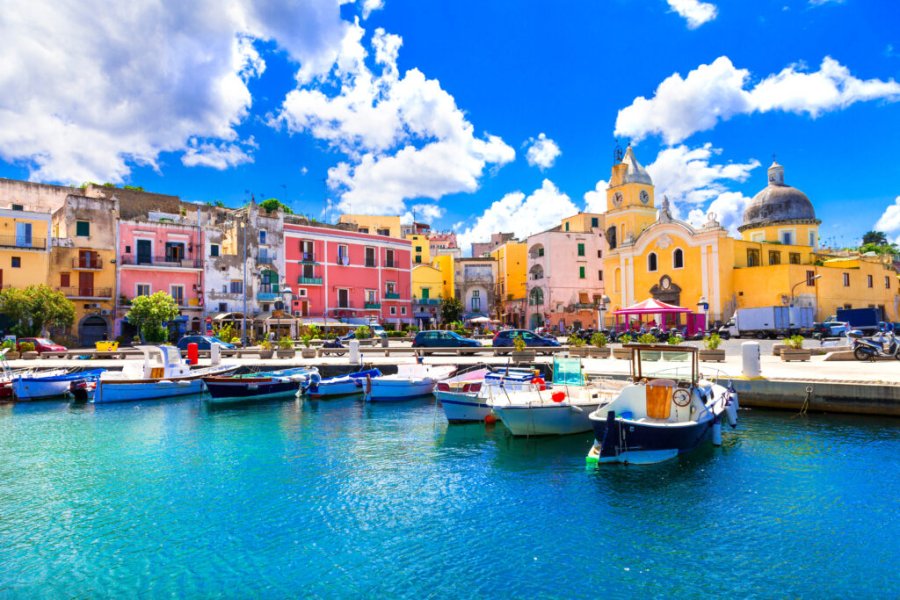Why go to Naples? The 10 good reasons to go Naples

Bathing in pure water
Some beaches are renowned for the quality of their water, which is among the cleanest in the country.

Unique archaeological sites
The cities of Vesuvius offer a snapshot of daily life 2,000 years ago.

A multi-millennial city
The long history of Naples can be read in its monuments, its streets and even its underground.

Breathtaking panoramas
From Capri, to the summit of Vesuvius, to the coast: the endless views are breathtaking.

A setting blessed by the gods
A mild climate and generous nature: the region has seduced all the peoples who have approached it.

The pleasures of the table
Sun-drenched ingredients and culinary traditions for an explosion of flavors.

Feel the pulse of Naples
And be carried away by the frantic rhythm of this dazzling city.

Unspoilt nature
National parks and marine protected areas stretch from the Apennines to the coast.

La douceur de vivre
Far from the frenzy of the North, la dolce vita is elevated to an art form.

A warm and sincere welcome
An openness to others that is part of the southern identity.
What to visit Naples?

Interview: My Naples
with Caroline George, author
Passionate about discovering the world since childhood, Caroline quickly fell under the spell of Italy. She passes on her passion as a tour guide and as an author for the Petit Futé. Caroline loves to explore Italy to discover its hidden treasures, to meet its inhabitants attached to their heritage, always in search of small authentic addresses.
See the video of the interviewGood to know to visit Naples
 Timetable
Timetable
As in most Mediterranean countries, Naples and Campania respect the sacrosanct hour of the siesta. After lunch, all public places seem to enter a state of lethargy, the streets empty, the rhythm of life slows down. Many monuments, museums and shops close their doors around 1pm and only reopen around 3pm, 4pm or even 5pm. However, the major national museums and some monuments have adopted a continuous schedule, they are open all day. The opening time is around 9am, closing time around 8pm. The hours also vary according to the high and low season. Most tourist sites are closed one day a week, often on Monday. Monuments in less visited places do not have well-defined opening hours.
 To be booked
To be booked
It is not necessary to book your visit to museums and monuments. None of the tourist sites in Campania are saturated with visitors. Only a guided tour requires a prior reservation, especially if you want it in French.
 Budget & Tips
Budget & Tips
The average price of an entrance for an adult varies between 3 and 8 €. Access to the major archaeological sites (Pompeii, Paestum) and to the major national museums (Archaeological Museum of Naples, Museum of Capodimonte) costs around €12. Discounts are generally available for minors under 16 years of age. Combined tickets for several buildings and packages also exist: in Naples, for example, the Artecard combines visits to museums with free use of public transport. Note that some monuments and museums are free: take advantage of this! In some churches, you may just be asked to pay an offering.
 Main events
Main events
With such a historical and cultural heritage, Campania's calendar is full of festivities! Religious and folkloric festivals, music, temporary exhibitions, sagre (fairs) celebrating a local gastronomic product, the calendar of festivities is very full.
May is the month of culture in Naples with the Maggio dei Monumenti. Various cultural events, often free of charge, are organized: guided tours, exhibitions, shows... Some places are only open to the public on this occasion. It is a bit like our heritage days.
Religious festivals dedicated to a patron saint bring together the whole community in a shared joy and fervour. The most representative is certainly that of San Gennaro, patron and protector of the city of Naples. Three times a year, the Neapolitans wait for the miracle of the liquefaction of the blood of San Gennaro, contained in small vials kept in the cathedral. But he is not the only saint venerated by the Neapolitan community: on 16 July, for example, the Madonna del Carmine is celebrated with great pomp in her church in Piazza Mercato with fireworks. In Campania, other religious celebrations attract the numerous faithful. One of the most important takes place in Pompeii: on October 26, pilgrims go to the sanctuary of the Madonna del Rosario and some believers walk through the city barefoot.
Some music festivals are well rooted in the cultural calendar, in particular the Ravello festival which takes place from June to September and Piano City Napoli which takes place in April, with piano concerts in the squares and monuments of the city.
There are also many recurring events linked to the cycle of the seasons and agricultural rhythms in the villages, as well as fairs dedicated to a local speciality or a typical dish: grape harvests, chestnut sagra , mushroom festival... All accompanied by tastings and folk music!
 Guided tours
Guided tours
From the traditional city tour to a visit to a museum, from a boat trip along the coast to the discovery of an archaeological site, the offer is varied. Contact the tourist offices of the major cities (or the agencies we recommend in this guide!), which can direct you to the tour that best suits you. You can also ask for the contact information of a private guide in French for a personalized approach and an individual visit.
 Smokers
Smokers
In Italy, smoking is prohibited in public places. It is still allowed on the terrace and outside. Be careful with cigarette butts: throwing your butt on the ground can get you a fine (even if all Italians do it). Cigarettes can be bought in Tabacchi offices (sign with a big T). Most cigarette vending machines only work with an Italian identity card or a tessera sanitaria, Italian health card, in other words not for foreigners. For vapers, electronic cigarette stores are quite rare outside the cities and tend to charge different prices for locals and tourists.
 Tourist traps
Tourist traps
If you wish to take a guided tour, make sure that your guide is properly accredited: his or her license, hung around the neck, must be visible while performing his or her duties. The guide has obtained his accreditation after a compulsory training and a sustained examination before a commission appointed by the Province. This guarantees the reliability and quality of the information given during the visit. If a so-called guide approaches you offering his or her services without a permit, don't bother.
